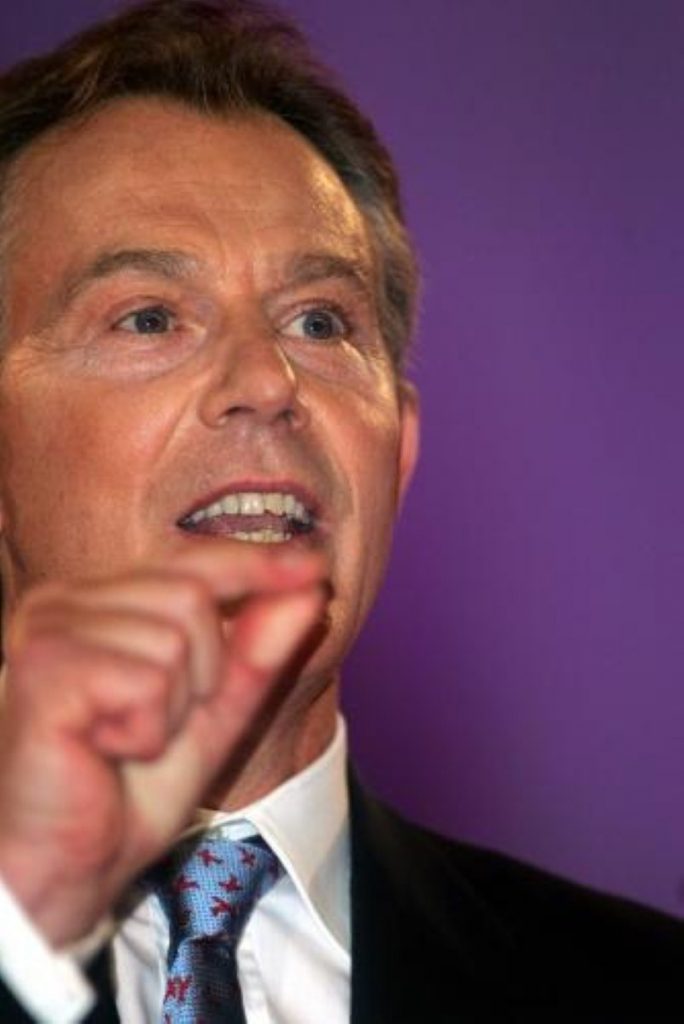Blair: Tories put economic stability at risk
In the final full week of the general election campaign Tony Blair has sought to portray the election as a choice between economic stability or boom and bust.
The Labour leader’s insistence that Labour is the “party of economic competence” came as the Conservatives launched their manifesto for business, promising lower taxes and less regulation.
He said economic stability had been “hard won”, adding that “it would be easily thrown away if Britain takes a gamble and goes back to the Conservatives.” And he characterised the choice as: “Economic stability or boom and bust. Gordon Brown or Oliver Letwin.”
“The single most important strategic shift in British politics over the last decade is that Labour has now replaced the Conservatives as the party of the economy, the party of stability, the party of entrepreneurs.”


Labour today pointed to the publication of a letter in the Financial Times from 63 party supporters and donors from the business world lauding Labour for presiding over “unprecedented” economic stability and growth and promoting entrepreneurship. Signatories to the letter include Sir Alan Sugar, chairman of Amstrad, Charles Allen, chief executive of ITV and Sir Gerry Robinson, chairman of Allied Domecq.
Speaking at this morning’s press conference, Gordon Brown said Labour had taken action “to revitalise Britain’s regions, Bristol, Nottingham and Birmingham will join Newcastle, Manchester and York as ‘science cities’ – business led regeneration in cities across the country.
Attacking Conservative economic plans, Mr Brown said they would never have been countenanced by Margaret Thatcher.
“While Labour will lock in and entrench the hard won economic stability that is the top priority of business, the reckless and irresponsible Conservative proposals – that Mrs Thatcher would never have countenanced and that as Shadow Chancellor I could never endorse – would put stability at risk.”
John Prescott sought to focus on the development of the regional economy, saying that in the 1980s many cities were in decline with falling populations, struggling economics, failing public services and no-go estates.
“But go to any of the big cities in Britain today and you cannot fail to notice the steady transformation that is taking place, and the confidence that brings to the regions of our country.”
Mr Prescott said: “Today we celebrate our core cities outside of London – Birmingham, Bristol, Leeds, Liverpool, Manchester, Newcastle-Gateshead, Nottingham and Sheffield – and our wider urban areas, which do so much in every region to sustain our national economy.”
Adding Glasgow, Edinburgh and Cardiff to the list of crucial cities, Mr Prescott said: “If people value urban renaissance in their cities and towns they should vote Labour on May 5.”
Trade and Industry Secretary, Patricia Hewitt, laid into the Conservatives saying that their business manifesto was “threadbare” and they were running away from the economy.
“Mrs Thatcher’s Tory party used to run on the economy. Mr Howard’s Tory party runs away from it.”
Specifically, she criticised Tory plans to reduce funding for scientific research, claiming: “This would result in key scientific discoveries happening abroad and Britain losing out.”
Ms Hewitt said the Conservatives were out of touch with the needs of British business and were campaigning not on a programme for government “but on a series of issues around which they hope to generate fear and grievance.”

